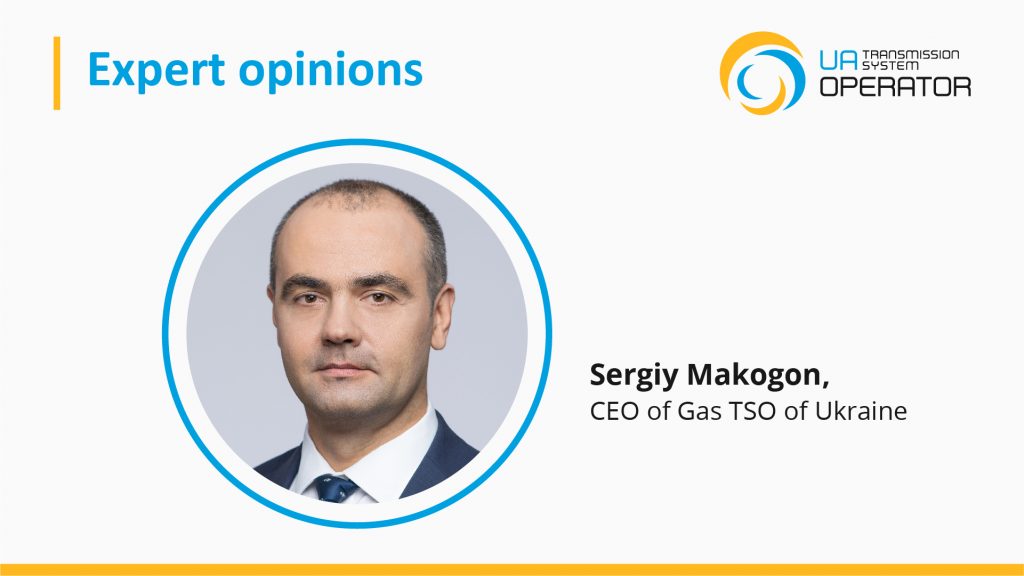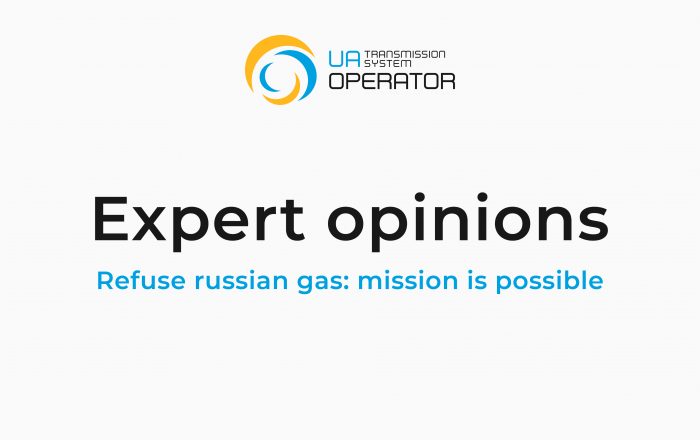Governments must effectively prepare for winter, and citizens must plan their energy consumption in the new environment. EU member states will reduce natural gas consumption by 15% this winter. The states themselves will be able to choose savings measures, and each country, depending on the location, available infrastructure, the potential of renewable sources, and consumption characteristics in the next heating season, will cope with the crisis in different ways. For Ukraine, this period will be a severe test. The GTS operator asked gas market experts what measures at the level of contries’ governments will help both household consumers and businesses cope with energy shortages this winter.
In the short term, the EU and Ukraine should focus on measures to save gas consumption and mutual assistance mechanisms in case of a crisis, – says Olena Pavlenko, President of DiXi Group.

«In addition to the intention to reduce gas consumption by 15 percent, the EU countries have begun active work with the population, explaining why it is important to save gas use now. The Ukrainian government should also start such a dialogue with consumers to be ready for the most difficult scenarios, including a complete halt in transit. Furthermore, the EU and Ukraine should intensify the dialogue on assistance with the supply of the necessary gas volumes in case of a critical situation – now the EU member states form such agreements, and it would be good if Ukraine joined this format. In the longer term, a coalition of companies and large consumers in the EU should be formed, affected by russian «gas wars» and manipulations with gas supplies. The German UNIPER has already announced a possible lawsuit against Gazprom for failure to fulfill the gas supply contract. The more such plaintiffs there are and the better their coordination among themselves, the greater the pressure on Gazprom to comply with contractual obligations for the winter period and to compensate for all manipulations in the EU gas market», – the expert noted.
«Ukraine’s preparations for the difficult winter 2022/2023 should be practical, clear, and take into account realities: russia is waging an armed war against Ukraine and an energy war against Europe, » – says Sergiy Makogon, CEO of Gas TSO of Ukraine. – GTSOU, at its level, coordinates work with local authorities and the military; we conduct regular stress tests and train personnel to manage GTS in emergency conditions. In Europe, the situation is somewhat more straightforward and may well be resolved due to countries’ solidarity and mutual support. To do this, it is necessary to simultaneously reduce the consumption of russian energy to deprive russia of the lever of political pressure, and remove bottlenecks between gas transportation systems».

Wojciech Jakobik, energy expert and editor-in-chief of BiznesAlert.pl., is convinced that the EU countries should step out of their comfort zone and begin to ration gas to prepare for the winter under the decision to reduce gas. In addition, it is necessary to introduce a gas embargo on russia to stop supplies on European terms now, while there is still time before the start of the heating season.

«This is the time for a nuclear renaissance and a compromise on coal because no operating power plant should be closed before the end of the energy crisis. Furthermore, Europe must create conditions for the stabilization of the Ukrainian electric power industry and the gas sector in the face of a real risk of a complete cessation of gas transit. It is necessary to provide a plan for further energy integration of Ukraine with the EU to prevent an internal «energy explosion», – Wojciech Jakobik believes.
Time is of the essence now. It’s really important for governments to plan now for a coordinated transfer of available gas to storage facilities for heating this winter, and to support consumers in need, – said Matthew Monteverde, senior vice president of global markets at the international pricing agency Argus.

«In general, Europe was looking for market solutions to its energy problems. While markets provide strong price signals in the short term, the past two years have made it abundantly clear that complex industrial supply chains take time to reconfigure. Therefore, any market-based solutions to withdraw gas from industry and the energy sector should be made available as soon as possible. In addition, it should be remembered that states are more than just market entities and that direct support of individuals and even large companies may be required», – the expert says.
Matthew Monteverde believes there may be a need this winter to provide safe public spaces for people to keep warm, as well as public funds for those living in poverty amid high energy costs, general inflation, and wage losses due to industrial energy conservation. Similarly, public utilities may need government intervention, especially if some energy suppliers fail, as happened in the UK last winter.
«And even if next spring seems like a distant future, any steps that can be taken now to reduce dependence on natural gas, even mundane issues like insulating homes and the temperature we keep our offices at, will make this discussion much less painful in next year», – he said.
Several important steps need to be taken this winter to mitigate the risks associated with a complete or partial cut in Russian gas supplies, Predrag Grujicic, Head of a gas unit at the Energy Community Secretariat.

Among which:
- Maintaining domestic gas production at the maximum level;
- Launching missing interconnectors in the region and unblocking existing but unused capacities (especially if they are owned by Gazprom);
- Prepare networks for potential but unusual/extraordinary flow models; ensure that networks can handle such flows;
- Ensuring cooperation between the EU Member States and Energy Community contracting parties (such as Ukraine) on physical and commercial aspects;
- Accumulating needed alternative fuels for heating where a transition is possible, accelerating the use of renewable heating sources where possible, and stockpiling alternative electricity sources in countries where gas for electricity generation is a significant market share;
- Postponement of the staged decommissioning of coal and nuclear power plants;
- Update/revision of national gas consumption reduction plans and organization urgent exercises to practice actions during emergencies.
Aura Sabadus, an ICIS energy expert, suggests three main issues around which the EU countries must act in a coordinated manner to survive the most challenging winter:
«The first is related to the decrease in demand for gas. Brussels has issued recommendations for a voluntary reduction of 15%, amounting to about 45 billion cubic meters on average for the period from August 1, 2022, to March 31, 2023. Despite the different perceptions of countries on this recommendation, the only way to respond to a potential crisis is to harmonize policies across the European bloc. Oddly enough, this is likely to be not only a test of the resilience of Europe’s energy market but of its own ability to stick together in the face of hitherto unprecedented challenges.

Secondly, cooperation will also be required at the level of gas transmission system operators in EU member states and Energy Community contracting parties. The lack of interconnection agreements between them and the failure to harmonize rules have been repeatedly noted as significant obstacles to energy security in Europe. Some operators continue to refuse to sign interconnection agreements or release cross-border capacity due to odorization issues or differences in gas quality. In peacetime, and when there was enough gas, one could give up on such disputes, but in conditions of extremely limited supplies, they are no longer acceptable. Solutions must be found immediately.
And third, several factors could be considered, including increasing production within safe levels at the Dutch Groningen gas field, reducing or temporarily removing the high taxes imposed on Romanian producers to encourage maximum production this winter, switching to alternative fuels where possible, and speeding up the completion of the construction of the new LNG import infrastructure», – the expert noted.
